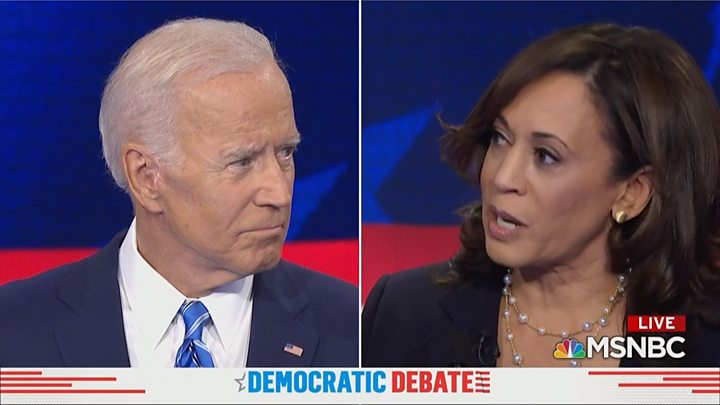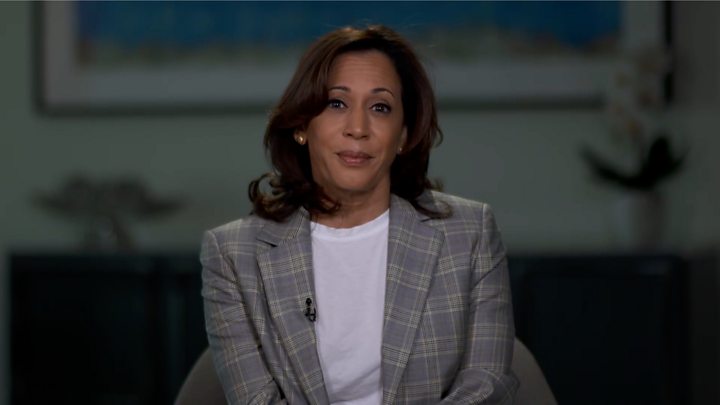In January Kamala Harris launched her presidential campaign in front of a crowd of more than 20,000 on a sunny afternoon in Oakland, California.
The event felt like the beginning of something big – a presidential campaign with money, national organisation and a young, charismatic candidate whose background was as diverse as the party she wanted to lead.
On the steps of Oakland’s City Hall, the former state attorney general and prosecutor from nearby San Francisco gave a speech full of lofty rhetoric, saying that the 2020 presidential election would be about the “right to moral leadership” of the entire planet.
Now her campaign won’t be around to see 2020, let alone the November general election.
Pundits and analysts are already picking apart Harris’s campaign strategy and perceived missteps over the past months. She tried to walk a line between the moderate and the progressive wings of her party and ended up appealing to neither.
In a New York Times opinion piece published a few days before Harris announced her campaign, California-based law professor Lara Bazelon offered a blistering attack on Harris as being insufficiently supportive of progressive criminal justice reforms.
“Kamala is a cop” became a common refrain on the campaign trail, and among left-leaning Democrats that label was not meant in a good way.
Harris responded by tacking to the left on the campaign trail, but that ceded much of the middle ground to competitors like Biden and Mayor Pete Buttigieg.
Despite this, Harris surged to near-front-runner status after a clash with Joe Biden in the June debate. She squandered the momentum she gained, however, with muddled responses to questions on healthcare policy. Her subsequent debate performances were lacklustre. She initially ignored, then made a belated push, to campaign in first-voting Iowa.

In a letter to her supporters, Harris attributed her decision to drop out of the race to a lack of funds.
“I’m not a billionaire. I can’t fund my own campaign,” she wrote, in a clear shot at two of her self-funding rivals, Michael Bloomberg and Tom Steyer. “And as the campaign has gone on, it’s become harder and harder to raise the money we need to compete.”
In the end, money is what does in most campaigns. And while Harris had posted solid fund-raising numbers in the first three quarters of 2019, her slow, steady decline in the polls and dimming electoral prospects must have been matched by dwindling donations.

She had already abandoned much of her New Hampshire campaign infrastructure, but even that wasn’t enough to keep her afloat.
Meanwhile, the Democratic presidential race will grind on without Harris. Looking at her dismal national poll standing – around 4% according to an average of recent surveys – the obvious answer to “who benefits from her dropout?” is “no one.” But the withdrawal of the only California officeholder in the race puts delegate- and donor-rich California, whose primary is in early March, up for grabs. That is significant. Expect California to become a fierce battleground in the weeks ahead.
At 55, Harris still has a long political career ahead of her. She would be an attractive vice-presidential pick for a candidate like Biden.
While her first foray into national politics will be largely remembered for unmet expectations and missed opportunities, she has plenty of time for a second act.
















